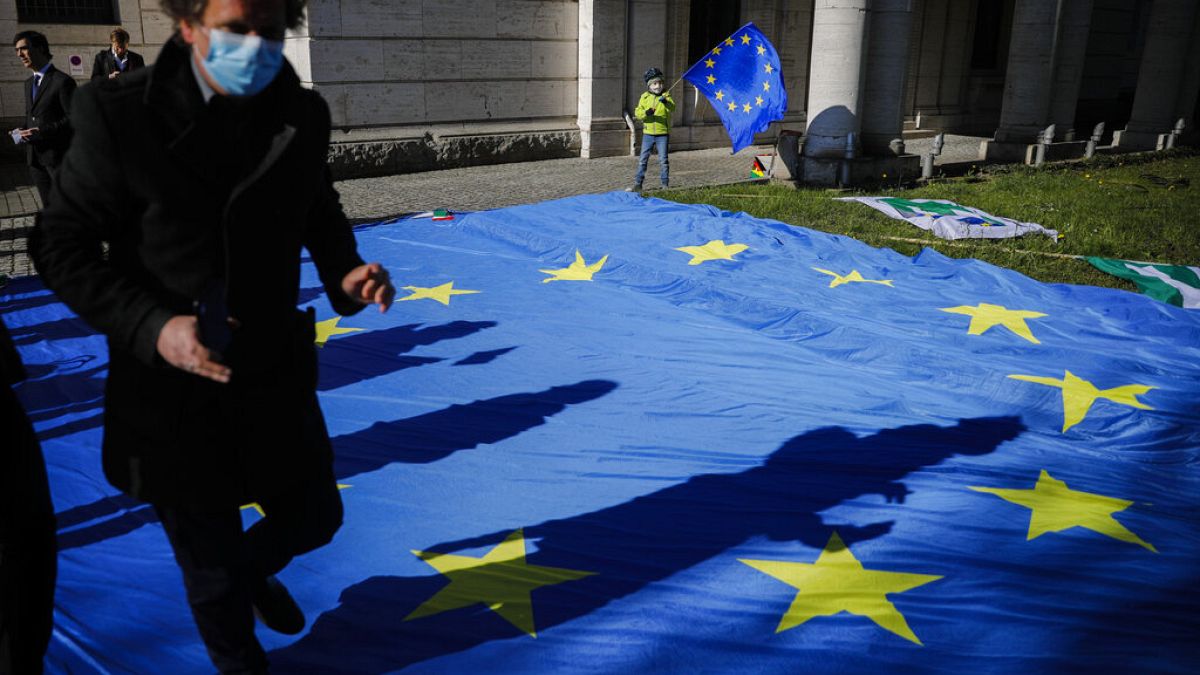Spain, Italy and France have warned that without more unity, the coronavirus pandemic could be the beginning of the end of the EU.
EU leaders are heading back into their fourth video call summit tasked with continuing to build the bloc’s response to the coronavirus crisis.
Eurozone finance ministers already penned a €540 billion plan for economic recovery. But the Netherlands flatly refused in previous e-meeting to accept special joint eurozone loans branded coronabonds. The scene is set for a showdown.
Italian resistance
For the Italian government these bonds were essential. But they’re moving their position and now backing the Spanish government which is bringing a new suggestion to this video summit.
Spain has joined Italy and France in warning that the response to COVID-19 is an existential struggle for the EU.
Spanish Foreign Affairs Minister Arancha Gonzalez Laya recently told Euronews: "In this crisis, either we all sink or we all float. Spain wants everybody to float, for sure."
The country is suggesting creating an economic recovery fund with up to €1.5 trillion, according to an internal Spanish government document.
“The proposals that are on the table right now with the best chance of success are run through the European Commission, they involve some sort of loan rather than a grant because a loan implies that the money will come back someday and isn’t just a straight up transfer payment," explained Rebecca Christie, a visiting fellow at the Bruegel think tank.
'And finally, they mostly involve some way of getting the money from the markets rather than getting the money from the member states."
Solidarity test
EU Council president Charles Michel’s job is to get leaders singing from the same hymn sheet to remove the questions surrounding EU unity.
In his invitation letter to EU leaders, he wrote: "I propose that we task the commission to analyse the exact needs and come up with a proposal that is commensurate with the challenge we are facing."
The commission is likely to have until the end of April to come up with such a recovery fund - including the amount and how to finance it.
Budget battle
Prior to the COVID-19 crisis the EU’s budget was under renegotiation - leaders will be discussing how far they’re willing to adapt it in the post-pandemic period.
One idea from Commission is to borrow on the market against the security of the EU's budget - and make cheap loans to national governments. But this raises the issue of grants versus loans.
Europe’s economic powerhouse, the traditionally frugal Germany, is also signalling it’s prepared to move further to support a European economic solution through what it’s calling, solidarity measures.
EU leaders meet from 15.00 CEST via videolink on Thursday April 23.
